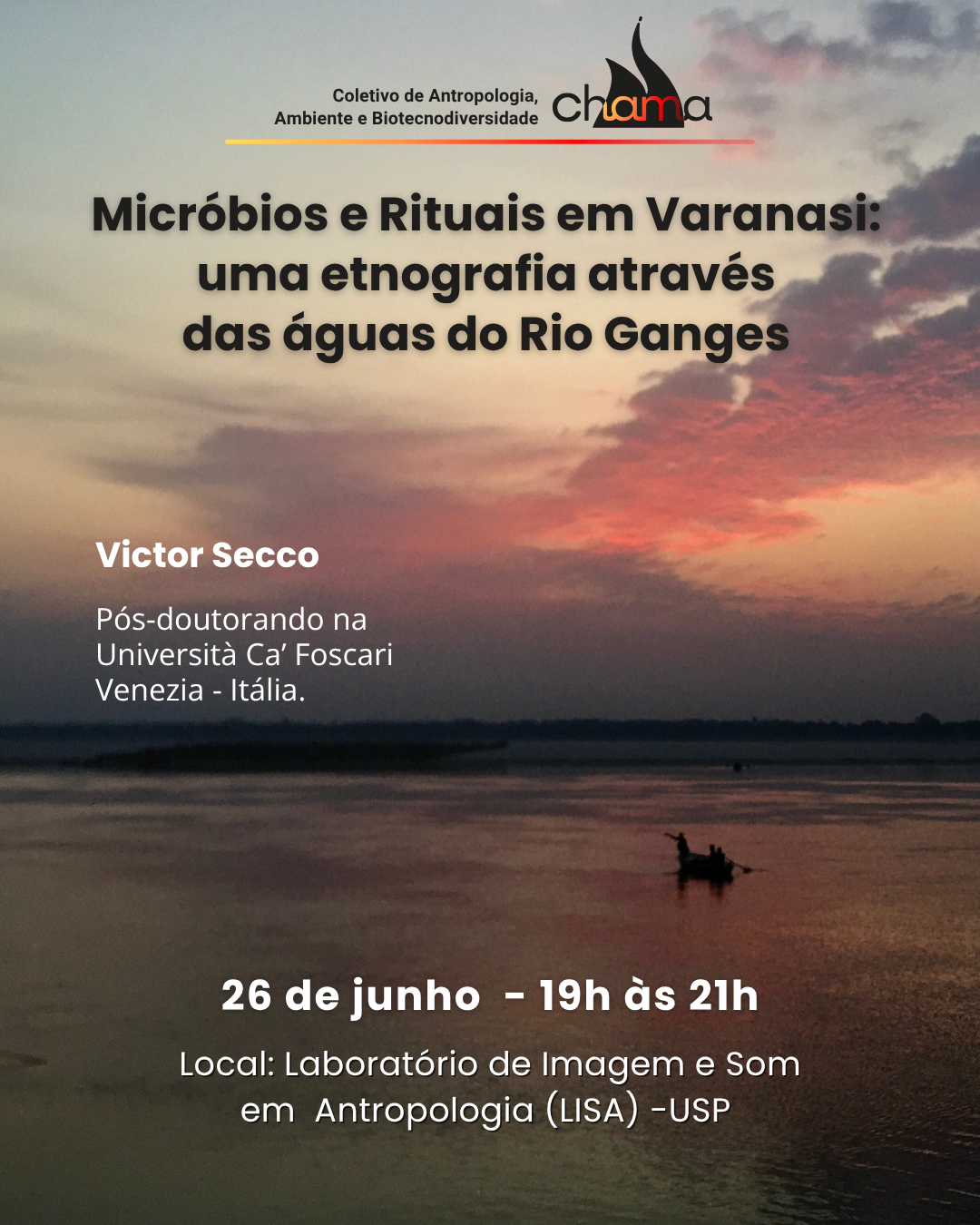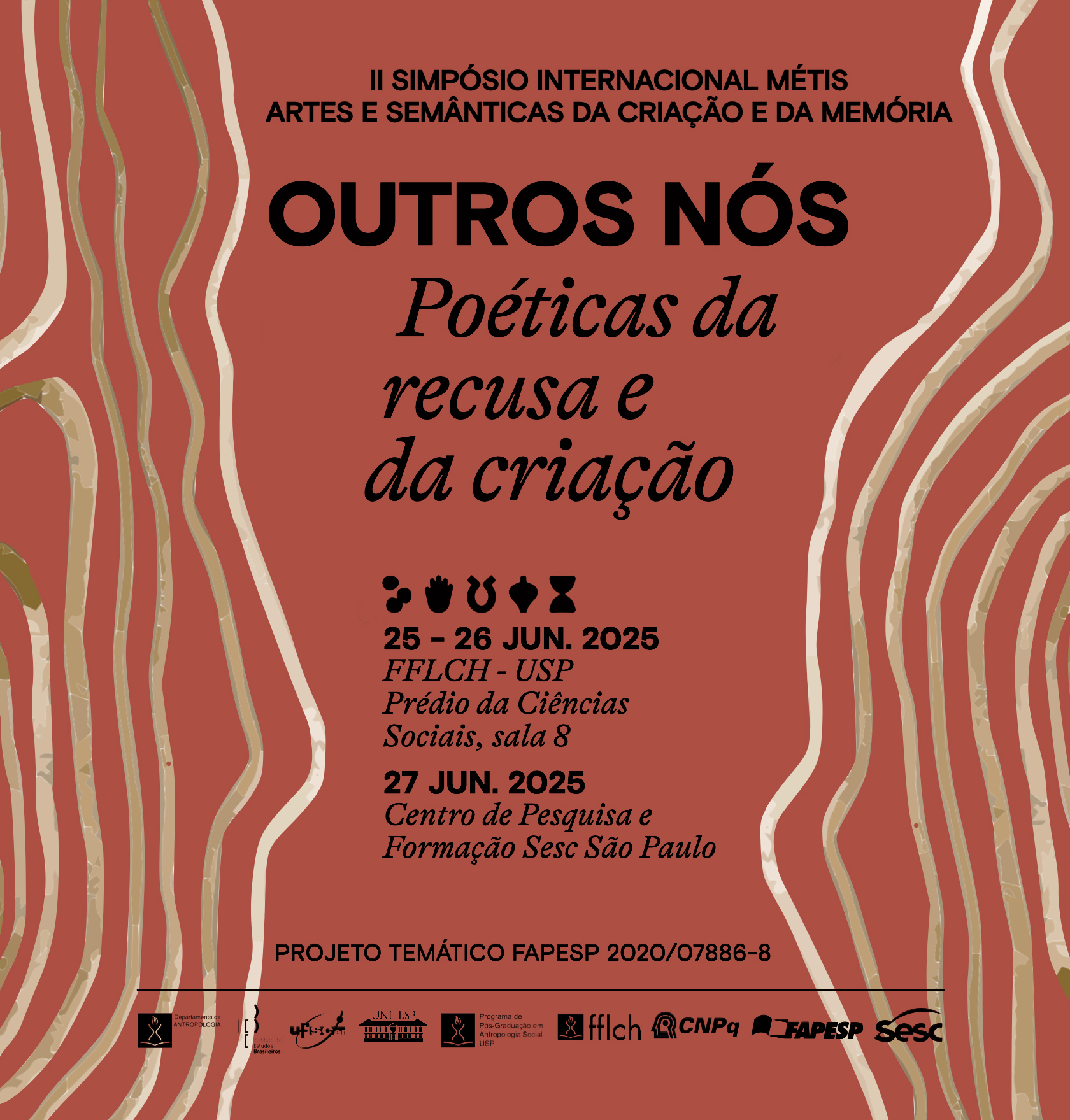History Events DA
LETEC - Ethnographic Laboratory of Technological and Digital Studies and Numas - Center for Studies on Social Markers of Difference invite you to the lecture "Having a party is a war: weddings, conflicts and social ties from an Anthropology of Instability", with professor. Dr. Michele Escoura (UFPA).
The event will take place on July 4th, at 3 pm, in room 24 (Social Sciences building) and online, with transmission by the FFLCH channel.
About the speaker: Michele Escoura is an anthropologist and Professor at the Federal University of Pará (UFPA) in the School of Social Sciences and in the Graduate Program in Sociology and Anthropology (PPGSA), where she coordinates the PUGNA Research Group - Ethnography, Power and Socialities, whose focus is on producing ethnographic investigations in the dialogue between studies on intersectionalities and the anthropology of politics. She holds a PhD in Social Sciences from the State University of Campinas (UNICAMP) with a thesis linked to the Center for Gender Studies PAGU; and a master's degree in Social Anthropology from the University of São Paulo (USP), where she is a member of the research team at the Research Center on Social Markers of Difference (NUMAS/USP).
Lecture "Introducing Stellenbosch University (South Africa) and its approach to Comprehensive Internationalization",
by Sarah Van der Westhuizen,
director of the Centre for Global Engagement at Stellenbosch University.
The lecture will take place this Wednesday, July 2nd, at 10:30 am, in Auditorium 024, in the Letters and Human Sciences Building/FFLCH-USP
The CHAMA Anthropology Collective is holding a seminar entitled “Seeking ‘the best of both worlds’: how a black truffle hunting dog is made in Chile.”
In Brazil, as in other dimensions of the Highlands and Lowlands of the Amerindian scenario and context, each indigenous ethnic group has a specific, particular, independent and interdependent model of social organization guided by ethnic-wide methodologies that allow for a life followed by self-identification. Therefore, from the point of view of the ethnic scenario of Brazilian indigenous cultures, patrilineal systems and matrilineal systems prevailed as the foundations of self-identification of an ethnic group. More than being systems, they are in fact educational methods of a sociocultural framework. Given the scenario in which the demands of ethnic identifications become fundamental in the face of public policies and academic policies, necessary and differentiated as aspects of indigenous law, we intend to approach the theme Hierarchy and system of social organization: the Tukano kinship machine, as a way of providing debate based on the reading of the Tukano social organization experienced as an educational methodology and as a machine of indigenous social organization in the context of the northwest Amazon.
Victor Secco will present central themes of his doctoral research, defended at the University of Manchester (England), which investigates the intersections between science, religion and multispecies interactions, based on an ethnography conducted with Hindu priests and microbiologists in the city of Varanasi, in northern India. The Ganges River, which runs through the city, is simultaneously revered for its sacred waters and known for its high levels of pollution. While millions of people depend on these waters for religious rituals and daily activities, the river receives huge volumes of sewage and other pollutants every day. Microbiological research reveals the presence of several bacteria, including antibiotic-resistant strains, but also identifies therapeutic potential, such as the use of bacteriophages for treatments.
Other Us: Poetics of Refusal and Creation
The II Métis International Symposium - Arts and Semantics of Creation and Memory, whose theme is “Other Us: Poetics of Refusal and Creation”, aims to investigate theoretically and ethnographically the various conceptions of the notion of creation, exploring its polysemy and its relations with memory, in line with the objectives of the Fapesp Thematic Project (2020/07886-8) to which it is linked. Based on the successful experience of the I SIM (2024), this second symposium stands out for promoting the encounter between professionals of different generations and subfields within anthropology and related areas, such as history, archaeology, philosophy, architecture and arts. It also welcomes people from other areas of knowledge, in line with an intellectual and political perspective of establishing intra and extra-university dialogues.
The Laboratory of Image and Sound in Anthropology (LISA-USP) will show four contemporary Guarani films in its auditorium, in special sessions, as part of the AntropoCena project, followed by debates with guests. Originating from the discipline Extension Practices in Indigenous Ethnology, under the guidance of Professor Pedro Cesarino, the exhibition aims to foster debate on issues dear to indigenous peoples, such as the relationship between territory and identity, in addition to raising, with a focus on the Guarani, discussions on the place of indigenous cinema in the national and international audiovisual panorama and giving visibility to this production.
Program:
DAY 1
06/23, 4pm
Yvy Pyte - Heart of the Earth (2023), 110', by Alberto Alvares and José Cury
Debate with guests: José Cury (co-director of the film) and Marcelo Hotimsky (anthropologist)
DAY 2
06/30, 5pm
Bicicletas de Nhanderu (2011), 45', by Ariel Ortega and Patrícia Ferreira Pará Yxapy
Debate with guest: Marcelo Hotimsky (anthropologist)
The course "Morals, Emotions and Anthropology" invites everyone to the lecture "Textures of the Ordinary", given by Prof. Fiona Ross, from the University of Cape Town, South Africa.
The event will include translation!
Suggested Reading: Raw Life and Respectability Poverty and Everyday Life in a Postapartheid Community. In: Current Anthropology Volume 56, Supplement 11, October 2015
Based on the experience of Zapatista territories in Chiapas, Mexico, the presentation addresses indigenous autonomy as dynamic processes of territorialization and creation of their own forms of sociopolitical organization. In dialogue with other Latin American experiences, we will reflect on how the Zapatistas (re)construct, on a daily basis, autonomous spaces in opposition to the processes of heteronomy imposed by the State and capital.
With
Fábio M. Alkmin (PhD in Human Geography/USP)
Lucas Keese dos Santos (PhD student at PPGAS/USP)
Mediation: Silvia Adoue (Unesp and Escola Nacional Florestan Fernandes)
The film “Rio das Mortes: nossa vida” will be shown in the AntropoCena session on June 12, 2025, at 5:00 p.m., in the LISA auditorium, in partnership with the Visual Anthropology Group of the University of São Paulo (GRAVI-USP), and will feature the presence of Ana Lúcia Ferraz, Associate Professor of the Department of Anthropology and Coordinator of the Ethnographic Film Laboratory of the Fluminense Federal University (UFF).
Ana Lúcia graduated from USP and holds a master's degree in Anthropology (1999), a PhD in Sociology (2005), and a postdoctoral degree in Social Anthropology (2010). She currently works in the fields of Indigenous Ethnology and Visual Anthropology, and is the author of a series of ethnographic films, including, with the Guarani Nhandeva, Nhande Ywy/Nosso Território (2018) and Öwawe dahoimanadzé/Rio das Mortes: nossa vida (2024).











